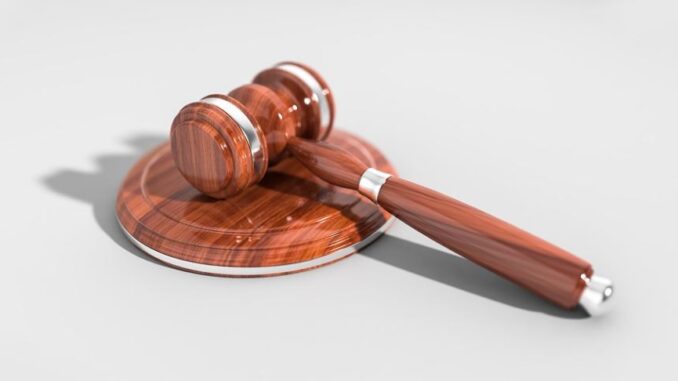
You can save time and money by figuring out which personal belongings are transferable and whether an estate does have assets that are exempt from probate. Early estate planning is a proactive step you may take to lessen the burden your loved ones will experience when handling your business after your passing.
If you don’t prepare ahead of time, your estate can be subject to a drawn-out probate procedure that could have been avoided.
Making a Will or Living Trust, in which you designate beneficiaries for certain assets, is one approach to guarantee that your assets are transferred in the manner you choose.
Learning the distinctions between assets subject to probate and those not subject to probate is another approach to getting ready.
What Sorts of Assets Are Probate-Eligible?
Probate is required for any assets that are held solely in the name of the deceased, aren’t partly owned, aren’t payable-on-death, do not have any heir designations, or aren’t included in a living trust. Those assets may consist of:
- Investment or bank accounts
- Bonds and stocks
- Automobiles
- Business relations
- Property other personal belongings or furnishings
Tenants-in-common property is a type of property that must go through probate. This occurs when two or more persons each hold a certain percentage of a particular asset. Any of the aforementioned assets, if formed in this manner, might be regarded as tenants-in-common property.
You can designate a successor in your will for your share of a tenant-in-common asset, for instance, if you own 50% of it. Don’t worry; we’ll go into more detail below about the distinctions between joint tenancy with survivorship rights and tenants-in-common.
Does Probate Apply to Household Items?
Simply said. Since household things are regarded as probate assets and lack a particular clear title, they must undergo the probate procedure.
The sentimental worth of these assets, which include things like home furnishings, clothing, collections, works of art, jewelry, etc., can be significant despite their relatively low monetary value. The executor of the estate will often divide these assets by the will.
However, if a person has a certain household object they consider to be essential, they can list it in their living trust and avoid probate.
How much must an estate be worth to be subject to probate?
When it relates to estate planning, more isn’t necessarily better because smaller estates might completely bypass probate court.
For instance, in California, if the entire value of your existing assets is less than $150,000, your estate will not need to go through the probate process. Only those assets that are still present are regarded as probate assets.
This indicates that even if your overall estate is greater, you could be able to benefit from a quicker (or skipped entirely) probate procedure.
Consider the following scenario: You possess a $400,000 joint property, a $200,000 bank account with a payable-on-death beneficiary, an $80,000 life insurance policy, $30,000 in assets held by a living trust, and a $20,000 privately owned automobile.
At first look, it would appear that your estate is worth $730,000 and must go through the probate process. Your estate, however, would probably be able to escape probate in the majority of states since the automobile is your sole asset subject to probate.
Remember that the definition of “small” differs from state to state, so be careful to review the specific probate rules applicable to your town. You can see probate attorneys here get some help.
What Assets Are Not Seen as Probate Assets?
Although many assets, including those listed earlier in this section, must be subjected to probate, some can mitigate the procedure. Here are a few specific instances:
- 401(k) or life insurance policies with designated beneficiaries
- Objects covered by a living trust
- Any assets that are filed on transfer on death (TOD) or payment on death (POD) forms, such as stocks or US bond funds.
- A pension plan’s assets
- Wages, salaries, or commissions owed to the deceased, but only up to a specific state-determined amount
- Vehicles and boats with TOD registration
- Distribution of automobiles or other household items to close relatives (laws vary by state)
For additional clarification, jointly held assets, their designations, and trust assets are the three categories of assets that, in the majority of circumstances, might escape the probate procedure. For an analysis of each, keep reading.
Dual ownership of assets
Any property you possess with someone else is a joint property, commonly referred to as joint tenancy with the right of survivorship.
It might well be regarded as a jointly owned asset, for instance, if you jointly own a piece of real estate with your partner and each of your names appear on the title.
Bank accounts operate similarly. If you and a deceased person have joint property, the surviving individual will become the legal owner of those assets.
It’s crucial to understand that ownership transfers instantly upon death. Therefore, the asset will nevertheless belong to the owner who is left even if your Will directs that your portion of the jointly held property be given to your surviving family members or siblings. Before you pass away, you must choose a new owner to prevent this.
Another form of shared ownership that we have discussed is tenancy in common. This sort of ownership enables you to specify in your Will how you would like your portion of the joint asset to be divided, allowing you to appoint a child or close relative as co-owner of the asset rather than having it pass exclusively to the surviving owner.
Designations of Beneficiaries
You can choose a successor for assets such as annuities, life estates, healthcare or medical savings, insurance plans, and retirement funds like IRAs and 401(k)s. This implies that such assets won’t go through probate when you pass away; instead, they’ll be distributed straight to the beneficiary you named.
There seem to be, however, a few noteworthy outliers to note: The asset(s) will still be subject to probate if the successor you choose dies before you, becomes disabled, is a juvenile, or is your estate (while it’s uncommon, some people do designate their estate as a successor).
Trust Assets
Unless you establish a trust in your will, known as a testamentary trust, any asset you mention in your living trust can evade probate. If so, your Will must first pass probate before the Trust may take effect. Make sure to amend your living trust on a routine basis if you buy additional estate or other significant assets to prevent this.
Conclusion
While it’s uncomfortable to consider your demise, to do so in advance is the greatest way to make sure your heirs get what’s legitimately theirs. You may write a Will or Living Trust that you feel secure in if you are aware of the distinctions between assets that must go through probate and those that do not.
